
Connecting to a wireless LAN network is a popular option for accessing internet-based applications. A readily available alternative is tethering or using a mobile hotspot, which allows the sharing of a smartphone’s mobile data to connect other devices to the internet. Most Android smartphones offer the capability to share mobile data through Wi-Fi, Bluetooth, or USB. Tethering effectively transforms a smartphone into a Wi-Fi access point, providing connectivity for laptops, tablets, microcontrollers, and low-power systems-on-chips (SoCs).
In areas with cellular network coverage, tethering offers the advantage of internet access from virtually anywhere, eliminating the need for separate data plans for each device. When password protection is enabled, tethering also ensures a cost-effective and secure internet connection across multiple devices. However, this method can significantly drain the smartphone’s battery, leading to more frequent recharging, which may reduce the convenience and flexibility typically associated with tethering.
To address the issue of rapid battery discharge during tethering, a setup utilising an ESP32 development board controlled via the ESP RainMaker app is proposed. This configuration includes four parallel systems, each operating on a separate SoC, to collect data and manage various functions during testing. To ensure continuous 24/7 connectivity, the smartphone serving as the mobile hotspot or tethering unit was physically recharged at specific intervals. A critical aspect of this setup is establishing a node through the ESP RainMaker app, which mitigates the problem of faster battery depletion in the tethering smartphone. Fig. 1 shows the authors’ prototype.
هذه القصة مأخوذة من طبعة September 2024 من Electronics For You.
ابدأ النسخة التجريبية المجانية من Magzter GOLD لمدة 7 أيام للوصول إلى آلاف القصص المتميزة المنسقة وأكثر من 9,000 مجلة وصحيفة.
بالفعل مشترك ? تسجيل الدخول
هذه القصة مأخوذة من طبعة September 2024 من Electronics For You.
ابدأ النسخة التجريبية المجانية من Magzter GOLD لمدة 7 أيام للوصول إلى آلاف القصص المتميزة المنسقة وأكثر من 9,000 مجلة وصحيفة.
بالفعل مشترك? تسجيل الدخول
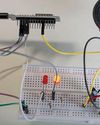
ESP32-Powered AUDIO-VISUAL SIREN
This sound alternator is designed to simulate the effects of a police siren, combining sound and light to create a dynamic audio-visual experience.
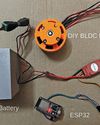
BLDC MOTOR With Web-Based Speed Control Using ESP32
Integrating wireless control into brushless direct current (BLDC) motor systems opens up exciting possibilities for applications such as remote-controlled cars, robots, and other innovative systems.
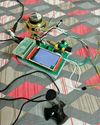
Pi Zero Portable BILINGUAL TRANSLATOR
This system is designed as a bilingual translator, leveraging the gTTS library to support multiple Indian languages, including English (en), Bengali (bn), Gujarati (gu), Hindi (hi), Kannada (kn), Malayalam (ml), Marathi (mr), Tamil (ta), Telugu (te), and Urdu (ur).
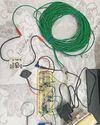
Op-Amp-Based VEHICLE THEFT DETECTOR
A simple, low-cost device can effectively alert homeowners or occupants if a parked vehicle is moved or tampered with.
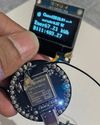
loT SMART METER With Dashboard
Energy meters in homes track electricity usage, enabling accurate billing by governments and providers.

Choose The Right Cloud Platform For Implementing loT PROTOCOLS
Working with loT protocols like MQTT, AMQP, and CoAP on cloud platforms is essential for developing scalable and efficient lol applications. The choice of the programming platform will depend on factors like project requirements, existing skills, and target devices. Leveraging the appropriate libraries and cloud services can enable seamless integration of lol devices with cloud-based applications.

Why TMR SENSORS Lead Next-Generation Design
TMR sensors are gaining traction in industries needing precision and power efficiency. What makes them the go-to choice for modern designs?
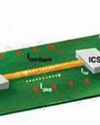
DESIGNING PCBs For EMI Management
Electromagnetic interference can derail your PCB’s performance. EMI management is not just a technical necessity but a hallmark of exceptional PCB design.

CUTTING COSTS, NOT CORNERS: Building Large Scale Applications With Open Source Software
Here are some strategies and best practices for leveraging open source to create enterprise-grade web and mobile applications without sacrificing quality or functionality.
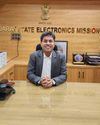
"We Are One Of India's Very Few State Bodies To Manage The Entire Lifecycle Of The Electronics EcosystemFrom Approvals To Subsidies."
What is Gujarat State Electronics Mission GSEM), and how is it attracting major investments in electronics manufacturing, particularly semiconductor manufacturing, to Gujarat? To delve deeper, Electronics For You’s Nijhum Rudra spoke with Manish Gurwani, the head of GSEM. Here is what he revealed...